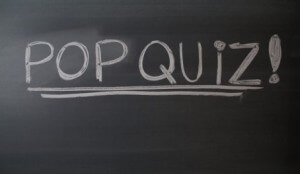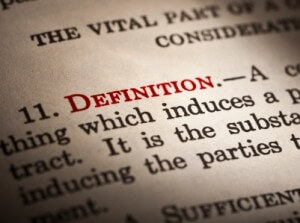Brand Name Vocab: Consolidated Edison
 Most of us in New York get our electricity from a company called ConEd, which is short for Consolidated Edison. However, companies with “consolidated” in their names are not hard to find: consolidated means “joined into a whole” and usually indicates that the company was once two or more smaller companies. Sure enough, Wikipedia tells us that, “In 1884, six gas companies combined into the Consolidated Gas Company” which eventually became ConEd.
Most of us in New York get our electricity from a company called ConEd, which is short for Consolidated Edison. However, companies with “consolidated” in their names are not hard to find: consolidated means “joined into a whole” and usually indicates that the company was once two or more smaller companies. Sure enough, Wikipedia tells us that, “In 1884, six gas companies combined into the Consolidated Gas Company” which eventually became ConEd.
A similar word for bringing things together is amalgamated. You may know an amalgam as a dental filling (so called because it is made with more than one metal), but the word occurs in the name of many labor unions: for instance, the Amalgamated Association of Iron and Steel Workers, which was involved in the famous Homestead Strike in 1892. Also interesting: iron and steel can themselves be amalgamated (using the meaning of amalgamate “to mix with mercury”).
Do you have some stuff you want to join together?
You could also fuse, meld, aggregate, or agglomerate it!
If you want to stick a small thing onto a big thing, you could annex it!
If you want to stick some things together end-to-end, you could concatenate them! As in, If you want to make your own chain mail, you’ll have to concatenate each link onto the one before it.
Visual Dictionary: Lithe
Welcome to Visual Dictionary, a series of posts about words that are better expressed in pictures.

This woman is quite lithe.
You could also say she is limber or lissome.
There are more words for flexible that you wouldn’t typically use to describe an entire person. For instance, supple (commonly used to describe skin or leather) and plastic (the point of plastic surgery is that it bends and reshapes parts of the body).
The words pliant and malleable can physically describe something like clay, or can metaphorically describe someone who bends to the will of others, a pushover.
Try this Sentence Completion problem:
Although they were twins, they couldn’t have been more different: she was a ________ ballerina, and he was a ________ but gentle giant who often broke things unintentionally.
A. lithe … ratiocinating
B. lissome … sashaying
C. flexible … craven
D. supple … tyrannical
E. limber … lumbering
Visual Dictionary: Docile
Welcome to Visual Dictionary, a series of posts about words that are better expressed in pictures.

Sheep are so docile.
Want someone who never argues with you? Try talking to a sheep! They are super acquiescent.
Choose your own answer to this Antonyms problem, then click “more.”
DOCILE:
A. refractory
B. garrulous
C. malleable
D. tractable
E. ruminatory
Pop Quiz: Back to the Land
 Pop Quiz!
Pop Quiz!
Which words are related to farming, the woods, or the out-of-doors?
Make your list, then click “more.”
SYLVAN
CAVALIER
PASTORAL
AGOG
ARCADIAN
BUCOLIC
DEMOTIC
AGRARIAN
ARABLE
CALUMNIOUS
Three-Letter Words: Wan
 Some of the most perplexing words on the GRE are diminutive. Who doesn’t see PAN : REVIEW and metaphorically scratch his or her head, or wonder what, exactly, a nib or a gin is on its own? Welcome to Three-Letter Words. A few of them might make you want to deploy some four-letter words.
Some of the most perplexing words on the GRE are diminutive. Who doesn’t see PAN : REVIEW and metaphorically scratch his or her head, or wonder what, exactly, a nib or a gin is on its own? Welcome to Three-Letter Words. A few of them might make you want to deploy some four-letter words.
Wan means pale, sickly, fatigued, or weak.
The reality show host gave the contestant a thumbs-up as he lowered her into a tank full of centipedes. She could manage only a wan smile in reply.
She made it to the job interview despite having the flu, and fortunately had time to duck into the ladies’ room and attempt to conceal her wan complexion with makeup.
Supposedly, Juan had been able to slam-dunk in high school, but ten years of smoking and indolence had not improved his basketball skills. After handily defeating Juan at a pickup game, Balaji said, “That was wan, Juan.”
Visual Dictionary: Torpid
Welcome to Visual Dictionary, a series of posts about words that are better expressed in pictures.
 Feeling torpid?
Feeling torpid?
If you are lacking energy, such as after a big meal on a hot day, you could refer to yourself as torpid, listless, lethargic, or enervated.
If you are lazy all of the time, you could refer to yourself as indolent, slothful, or shiftless.
Choose your own answer to this Antonyms problem, then click “more.”
TORPID:
A. intractable
B. peppery
C. ineffable
D. indefatigable
E. intrepid
Three-Letter Words: Ilk
 Some of the most perplexing words on the GRE are diminutive. Who doesn’t see PAN : REVIEW and metaphorically scratch his or her head, or wonder what, exactly, a nib or a gin is on its own? Welcome to Three-Letter Words. A few of them might make you want to deploy some four-letter words.
Some of the most perplexing words on the GRE are diminutive. Who doesn’t see PAN : REVIEW and metaphorically scratch his or her head, or wonder what, exactly, a nib or a gin is on its own? Welcome to Three-Letter Words. A few of them might make you want to deploy some four-letter words.
Ilk (rhymes with “milk”) means a family, class, or kind. Don’t confuse it with elk.
You and your ilk are not welcome at the Soho Club. Get out and take your smelly raccoons with you!
Elk and their ilk reside largely in North America and feed on grasses, leaves, and bark.
Interestingly, ilk comes to us from Scotland, where “of that ilk” meant “from the same place as one’s last name.” As Dictionary.com tells it, Ross of that ilk means Ross from the town of Ross.
Brand Name Vocab: Dysport
Dysport is a brand of botulism toxin that can be injected into the face to relax wrinkles; in other words, it’s a competitor to Botox. Just as “Botox” is a contraction of “botulism toxin,” the “dys” in “Dysport” seems to be saying something bad — dysfunction, dystopia, etc.

However, the name “Dysport” also has a positive connotation, at least for those who know the word disport, “to divert or amuse oneself.” As in, The children happily disported on the playground all afternoon.
You know how I love to divert or amuse myself? Needles in the face! Positively needles in the face. The disportment never stops!
(p.s. I was being facetious).
Vocabulary in “The Princess Bride”
The following is the famous “Battle of Wits” scene from the 1987 comedy The Princess Bride:
//www.youtube.com/watch?v=lA-AEuXn1eg&hl=en_US
Early on in the scene, the Man in Black says, “Well, if there can be no arrangement, then we are at an impasse.” An impasse is a deadlock or a road, such as a cul-de-sac, that has no outlet.
Here is a snippet of the dialogue from the Battle of Wits:
Man in Black: All right. Where is the poison? The battle of wits has begun. It ends when you decide and we both drink, and find out who is right… and who is dead.
Vizzini: But it’s so simple. All I have to do is divine from what I know of you: are you the sort of man who would put the poison into his own goblet or his enemy’s? Now, a clever man would put the poison into his own goblet, because he would know that only a great fool would reach for what he was given. I am not a great fool, so I can clearly not choose the wine in front of you. But you must have known I was not a great fool, you would have counted on it, so I can clearly not choose the wine in front of me.
Man in Black: You’ve made your decision then?
Vizzini: Not remotely. Because iocane comes from Australia, as everyone knows, and Australia is entirely peopled with criminals, and criminals are used to having people not trust them, as you are not trusted by me, so I can clearly not choose the wine in front of you.
Man in Black: Truly, you have a dizzying intellect.
Vizzini is demonstrating sophistry (or sophism), “a subtle, tricky, superficially plausible, but generally fallacious method of reasoning.” (Well, I suppose Vizzini’s errors aren’t so “subtle,” actually).
Sophistry got its name from the Sophists, a group of ancient Greek teachers of philosophy and rhetoric. Sadly, the Sophists’ work comes to us primarily through the writings of their opponents, Plato and Aristotle, which is why sophistry means “deceptive reasoning.”
You probably already know the word fallacy, a logical mistake, but a more unusual word for false reasoning is casuistry.
Like sophistry, casuistry can also mean specious or deceptive reasoning, although its other meaning is “a case-based approach to ethics” — for instance, arguing that stealing could be acceptable if its purpose is to feed one’s starving children. Just as sophistry was given a negative connotation by its opponents, casuistry got its “bad” meaning from those prefer a more principle-based approach to ethics.
The argument, “If you’re hungry, broccoli is better than nothing; nothing is better than a juicy hamburger; therefore, broccoli is better than a juicy hamburger” is pure casuistry. Its apparent syllogistic format obscures the fact that the argument uses the word “nothing” in two very different ways — a common trick of sophists.
Three-Letter Words: Ire
 Some of the most perplexing words on the GRE are diminutive. Who doesn’t see PAN : REVIEW and metaphorically scratch his or her head, or wonder what, exactly, a nib or a gin is on its own? Welcome to Three-Letter Words. A few of them might make you want to deploy some four-letter words.
Some of the most perplexing words on the GRE are diminutive. Who doesn’t see PAN : REVIEW and metaphorically scratch his or her head, or wonder what, exactly, a nib or a gin is on its own? Welcome to Three-Letter Words. A few of them might make you want to deploy some four-letter words.
Ire means “anger or wrath” and comes from the same root as irascible and irate. To raise someone’s ire is to anger that person.
If it’s helpful as a mnemonic, you could remember ire by imagining a very angry man named Ira, or by imagining that everyone in Ireland is angry, although we certainly wouldn’t want to stereotype men named Ira, or the Irish, and certainly not Irish men named Ira.
Reading the above paragraph about ire would likely make an Irishman named Ira quite irate. No one wants to raise the ire of an irascible Irish Ira.
Try a sample Analogies problem:
MOLLIFY : IRE ::
A. socialize : apathy
B. rattle : equanimity
C. antagonize : desire
D. quarantine : happiness
E. silence : bombast
Choose your own answer, then click “more for the solution.